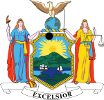October 29-30, 2015
Albany, NY
Project directors:
Andrew Davies, Ph.D.
Giza Lopes, Ph.D.
Across the United States, poor people often don't have access to quality legal representation. In 2012, former Attorney General Eric Holder said the nation's public defenders - those lawyers charged with protecting the rights of people facing the possibility of incarceration - were in a state of 'crisis.' Representation in non-criminal matters, for people facing the loss of their home to eviction or their children to foster care for example, is often non-existent. These systems face common problems. How do you provide quality legal services in contexts where stakes are high but resources are scarce?
Science has barely begun to look at the question of what quality legal representation means, still less to examine its causes or consequences. At this meeting, we will bring together specialists in a wide range of fields to examine what legal representation looks like, and how courts can produce it. We'll be thinking about what difference it makes to have high quality representation in place, both for individuals and for the justice system. What difference does it make if a person has a good lawyer in court? What do we mean by a 'good' lawyer? And how can we make sure all people who need one get one?
Scholars who have made careers investigating how courts work will be placed in conversation with practicing lawyers, their clients, and researchers from other fields to talk about how knowledge on quality legal representation can be advanced. We will post videos of several of the lectures from the meeting online for future reference, and will produce a summary of the discussions at the meeting for wider publication.
This event has been made possible by funding from the National Science Foundation (award #1550942) and is hosted by the New York State Office of Indigent Legal Services and the Michael Hindelang Criminal Justice Research Center at the School of Criminal Justice, State University of New York at Albany

